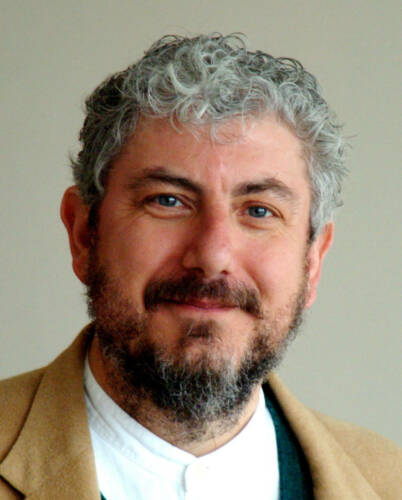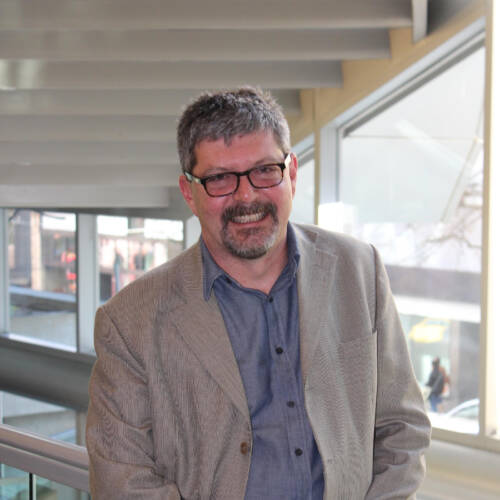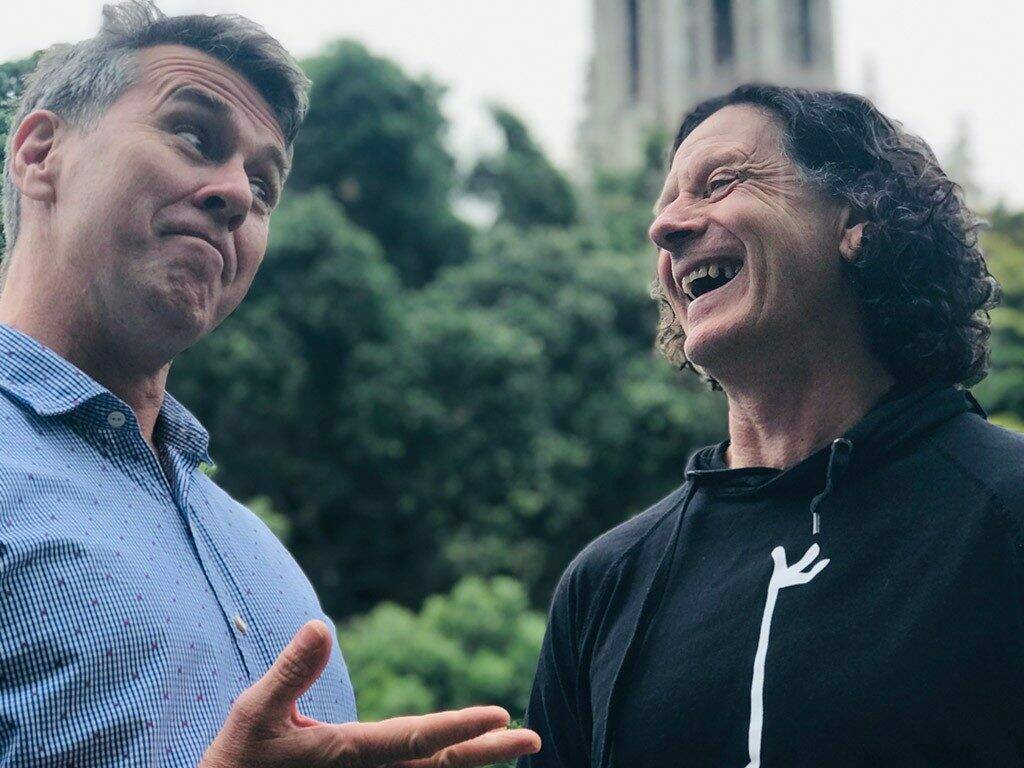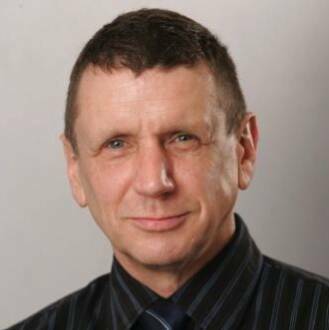UNITWIN/UNESCO Chairs programme
Addressing challenges and contributing to the development of society through international inter-university cooperation and networking.
What is the UNITWIN/UNESCO Chairs Programme?
Launched in 1992, the UNITWIN/UNESCO Chairs Programme promotes international inter-university cooperation and networking to enhance institutional capacities through knowledge sharing and collaborative work.
Through this network, higher education and research institutions all over the globe pool their resources, both human and material, to address pressing challenges and contribute to the development of their societies.

Our Aotearoa UNESCO Chairs
Emeritus Professor Paul Morris
UNESCO Chair in Interreligious Understanding and Relations in New Zealand and the Pacific

Paul Morris is Emeritus Professor of Religious Studies at Victoria University of Wellington.
Paul is a graduate of Victoria University of Wellington and studied and taught at Lancaster University before returning to New Zealand. He has held visiting appointments at the University of Queensland, University of Sydney, UNSW, University of Melbourne, University of California, Santa Barbara, Boston University, L’Observatoire du Religieux, Institut d’études politiques d’Aix-en-Provence (Sciences Po Aix), and the Oxford Centre for Hebrew and Jewish Studies where he was Dorset Research Fellow. Professor Morris is a New Zealand Literature Montana prize winner and finalist and received the 2007 International council of Christians and Jews Gold Medal for Peace through Dialogue (Heppenheim, Germany).
His current teaching includes lectures on religion and death, Jewish practice and belief, gender and religion, and religion and politics in New Zealand and the Pacific. Publications include books and articles on religion and politics; religion in the Pacific; cosmopolitanism and religion; citizenship and religion; religious diversity, multiculturalism, and religion; religion in New Zealand; radical theologies; and religion and poetry.
His current research includes the spirit of Aotearoa New Zealand; religious responses to emergency and disaster; religion and national and transnational citizenship; the intersectionality of religious and ethnic identities; and religions and markets.
Dr Wayne Mackintosh
UNESCO Chair on Open Educational Resources (OER)

Wayne Mackintosh is the Managing Director of the Open Education Resource Foundation, an independent non-profit organisation head-quartered at Te Pūkenga (New Zealand Institute of Skills and Technology) where he holds the UNESCO Chair in Open Educational Resources (OER).
The Foundation provides collaborative networking opportunities and practical support to governments and institutions with the implementation of the UNESCO OER Recommendation and coordinates the OER universitas (OERu) international network.
Wayne has extensive international experience in educational technology, learning design and the theory and practice of open and distance learning (ODL). Previously, he was Education Specialist, eLearning and ICT policy at the Commonwealth of Learning (COL), an intergovernmental organisation based in Vancouver, Canada. Before joining COL he was Associate Professor and founding director of the Centre for Flexible and Distance Learning (CFDL) at the University of Auckland, New Zealand. Prior to moving to New Zealand he spent eleven years working at the University of South Africa (UNISA), a distance learning institution and one of the world’s mega-universities. Wayne has participated in a range of international consultancies and projects including work for COL, the International Monetary Fund, UNESCO and the World Bank. Wayne is recipient of the International Council of Open and Distance Education (ICDE) Individual Prize of Excellence and was conferred the Global Leadership Award by Open Education Global.
Co-chairs Professors Ralph Buck and Nicholas Rowe
UNESCO Chair on Dance and Social Inclusion
The establishment of this Chair recognises that dance can be a key means of including the excluded, a sentiment which is shared by the co-chairs Professors Ralph Buck and Nicholas Rowe of the faculty of Creative Arts and Industries of Auckland University.

“Dance is many things to many different people. It can be a performance, an art, a moment of delight, an expression of hurt. It can be a platform for fostering health, an expression of culture and heritage, a way to revolt, a means for creating a new vision for the future”, says Associate Professor Ralph Buck.
Professor Ralph Buck is Head of Dance Studies, University of Auckland, New Zealand. His research and teaching focuses on dance education curriculum, dance pedagogy and community dance. Ralph is currently working within several international dance research and service organisations such as, World Alliance for Arts Education (WAAE); World Dance Alliance (WDA); UNESCO UNITWIN Arts Education Research (Singapore); and, ArtsEqual (Finland).
Ralph’s teaching and leadership has been recognised by The University of Auckland Distinguished Teaching Award, 2008; Award for Leadership, 2010; Excellence Award for Equal Opportunities 2006; and, Creative Arts and Industries Research Excellence Award, 2016. His research in dance education is published in international journals and he has delivered invited key notes and master classes in Hong Kong, Taiwan, Australia, Columbia, Sweden, Finland, Singapore, China, Denmark, New Zealand and Fiji.
Professor Nicholas Rowe is a graduate of the Australian Ballet School and holds a PhD from the London Contemporary Dance School. He has choreographed and performed with The Finnish National Ballet, Australian Ballet, Sydney Dance Company and Royal New Zealand Ballet, among others. From 2000-2008 Nicholas resided in the Occupied Palestinian Territories working in refugee camps on dance projects with local artists, and he continues to maintain an active practice as a community dance animateur in diverse regions of the world. Nicholas gives regular public talks on the relationship between dance, communities and political contexts, with a particular focus on cultural hegemony and appropriation
Nicholas is an award-winning filmmaker and his film work includes writing/directing the feature-length films The Secret World and Dancing7Cities. He has published extensively on dance, creativity, collaboration and education in diverse cultural contexts, within leading international academic journals.
Professor Stuart Carr
UNESCO Chair on Sustainable Livelihoods

Stuart Carr is Professor of Industrial and Organizational (I/O) Psychology at Massey University. Stuart co-facilitates the End Poverty and Inequality Cluster (EPIC), which includes a focus on transitions from precarious labor to decent work and living wages. Intersecting with EPIC is Project G.L.O.W. (for Global Living Organizational Wage), a multi-country, multi-generational, interdisciplinary study of the links between decent wages (in purchasing power parity), and sustainable livelihoods for the eradication of poverty – the primary UN Sustainable Development Goal.
Stuart’s professional focus is Humanitarian Work Psychology, which has included a Global Task Force for Humanitarian Work Psychology, promoting Decent Work aligned with local stakeholder needs, in partnership with global development agencies. He was a lead investigator on Project ADDUP, a multi-country DFID/ESRC-funded study of pay and remuneration diversity between national and international labor in developing economies.
Stuart is a Fellow of the Royal Society of New Zealand (RSNZ), the Society for Industrial and Organizational Psychology (SIOP), and the New Zealand Psychological Society (NZPS). He was the coordinating Principal Investigator for a RSNZ Marsden Grant awarded to the New Zealand hubs in GLOW (2018). He is a previous Editor of the Journal of Pacific Rim Psychology, and International Perspectives in Psychology: Research, Practice, Consultation, which supports the SDGs.
